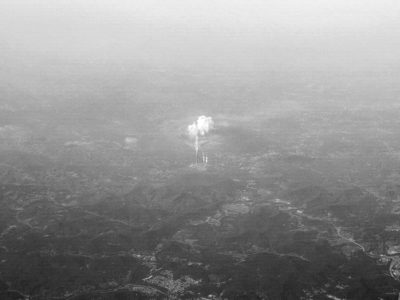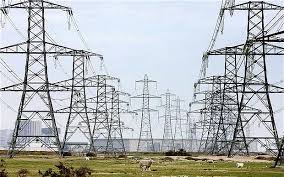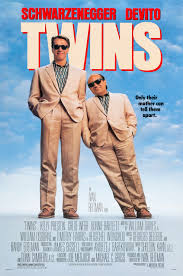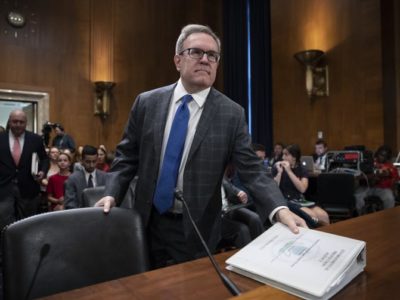Clean Air Act
John Dingell, 1926-2019
The Surprising Environmental Record of Detroit’s Biggest Congressional Defender
There’s an old story about Rep. John Dingell, the long-running chair of the powerful Energy and Commerce Committee, who died yesterday at the age of 92, and served in the House longer than anyone in American history. Outside the office of the Committee, there is a huge picture of the Earth, taken from the Apollo …
Continue reading “John Dingell, 1926-2019”
CONTINUE READINGEPA’s Return to Bush-Era Clean Air Act Reforms Sacrifices Agency’s Duty to Protect Environment, Ignores the Law
Quiet changes buried behind the big de-regulatory headlines spell disaster for the environment
As I explained back in August, the Trump Administration’s proposed Clean Power Plan replacement (the “Affordable Clean Energy” or ACE rule) came with a significant change to how the EPA has traditionally interpreted the Clean Air Act’s New Source Review (NSR) provisions mandating pre-construction environmental review and the installation of air pollution controls to offset …
CONTINUE READINGThe Power of the Purse
House Democrats have power to use appropriations process to stop Trump Administration environmental rollbacks
Dan has already posted about some of the big deregulatory steps the Trump Administration is likely to take in the next year. But the new Democratic majority in the House could have something to say about those steps, if they wanted to. Democrats will have even more leverage over spending bills than they had in …
Continue reading “The Power of the Purse”
CONTINUE READINGGuest Bloggers Deborah Gordon and Frances Reuland: Is California Extraordinary? Its Oil Resources Certainly Are
Facts About California’s Oil and Greenhouse Gas Emissions
Despite ongoing federal rollbacks to environmental regulations, California has the right to set its own clean air standards because it is truly extraordinary. Truth be told, the compelling circumstances that first set in motion California’s vehicle emissions standards remain entirely valid. And there are four recent conditions, related to California’s oil supply, production, and refining, …
CONTINUE READINGJumping the Fence Line, Embracing the Grid
Precedent from another agency for the Clean Power Plan.
If you’ve been reading this blog or otherwise keeping up with environmental law, you’ve probably heard this a hundred times: In rolling back Obama’s signature climate regulation, the Clean Power Plan, the Trump Administration is relying on the idea that EPA’s jurisdiction stops at the fence line. That is, according to the Trump folks, EPA …
Continue reading “Jumping the Fence Line, Embracing the Grid”
CONTINUE READINGGuest Bloggers Jennifer Garlock and Michelle Melton: California Enacts Law to Reduce Greenhouse Gas Emissions from Ride-Hailing Companies
Governor Brown Signs SB 1014, Allowing Innovative Approaches to Emissions Reduction
As part of its broader efforts to tackle climate change, California has set its sights on a new, and fast-growing, source of greenhouse gas (GHG) emissions: ride-hailing companies like Uber and Lyft. On September 13, Governor Brown signed SB 1014, making California the first U.S. jurisdiction to require that ride-hailing companies—also known as transportation network …
CONTINUE READINGThe Case for Co-Benefits
Ignoring co-benefits violates well-established legal principles.
The Trump Administration is moving toward the view, long popular in industry, that when it regulates a pollutant, EPA can consider only the health impacts of that particular pollutant – even when the regulation will also reduce other harmful pollutants. This idea is especially important in climate change regulation, because cutting carbon emissions almost always …
Continue reading “The Case for Co-Benefits”
CONTINUE READINGSeparated at Birth? No, not really.
Trump’s pro-coal EPA plan equates two legal provisions with little in common.
Trump’s plan for coal-fired power plants, like Obama’s plan to cut carbon emissions, is based on section 111(d) of the Clean Air Act. But much of the legal argument relies on an analogy to section 165 to support EPA’s very restrictive interpretation of section 111(d). It’s that restrictive interpretation that leads the agency to reject …
Continue reading “Separated at Birth? No, not really.”
CONTINUE READINGDoes the Clean Air Act Mask One of Our Worst Remaining Air Pollution Problems?
New Article Addresses Hot Spot Pollution and the Clean Air Act
Over the last fifty years, we have made huge progress in cleaning up the nation’s air. Overall pollution levels have dropped by 70 percent since the 1970s, cars are 99 percent cleaner, and we’ve essentially eliminated lead from the atmosphere. The Clean Air Act is the main reason for this success, saving countless lives and …
Continue reading “Does the Clean Air Act Mask One of Our Worst Remaining Air Pollution Problems?”
CONTINUE READINGTrump administration and California are on collision course over vehicle emissions rules
Meredith Hankins and Nicholas Bryner co-author legal explainer for The Conversation
California and the Trump administration are going different directions on mileage standards. AP Photo/Rich Pedroncelli Meredith Hankins, University of California, Los Angeles and Nicholas Bryner, Louisiana State University The Trump administration on Aug. 2 formally announced a proposal to freeze fuel economy standards and tailpipe emission standards for new cars. In addition, it is proposing …
CONTINUE READING










